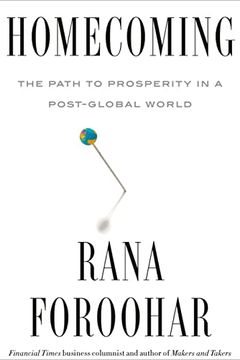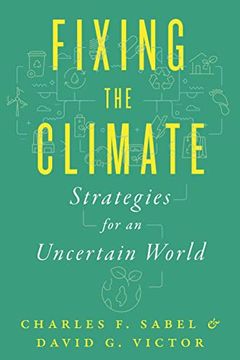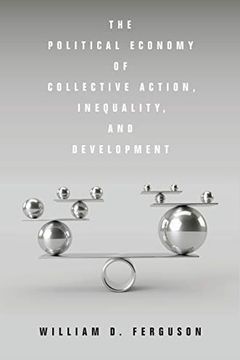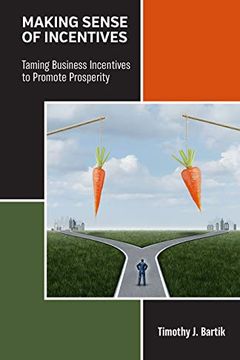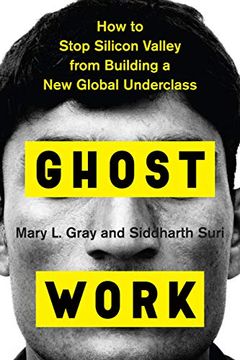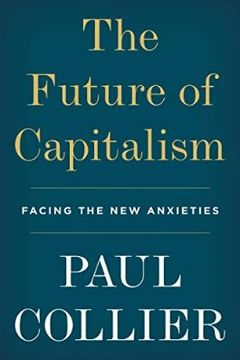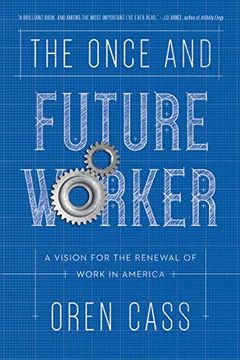Dani Rodrik
Recommended Books
Dani Rodrik is a Turkish economist and Ford Foundation Professor of International Political Economy at the John F. Kennedy School of Government at Harvard University. He was formerly the Albert O. Hirschman Professor of the Social Sciences at the Institute for Advanced Study in Princeton, New Jersey.
17 books on the list
Sort by
Latest Recommendations First
Layout
Discover how the end of globalization will reunite place and prosperity in this bold and readable book by a leading economic journalist. Explore the challenges and possibilities of the new era, where a wave of technological innovations and place-based economics make it possible to keep operations, investment, and wealth closer to home. Learn how this localization movement can transform our economy into a more equitable and prosperous future. One of the best books of the year, as named by Kirkus reviews.
Dani Rodrik
2022-09-25T17:22:17.000ZThis thought-provoking book argues that solving the global climate crisis requires a different approach than what we have seen from top-down global treaties. Fixing the Climate advocates for local partnerships and experimentation with new technologies to quickly learn the best solutions, which can then be spread globally. The authors explain that some of the most iconic environmental policy successes were the result of this experimentalist approach. They argue that local experimentation can help societies deploy the technologies and policies necessary to tackle this daunting global problem, and finally lead to self-sustaining reductions in emissions.
This book explores how and why the United States pivoted to become the world's leading superpower, leading the postwar world. The author traces this transformation to the crucible of World War II, detailing the events that led key decision-makers to believe the US ought to achieve global primacy. Weaving together a sophisticated and impassioned narrative, the author questions the wisdom of US supremacy and explores the intellectual path that brought us to today's global entanglements and endless wars.
Dani Rodrik
2020-12-31T16:51:13.000Z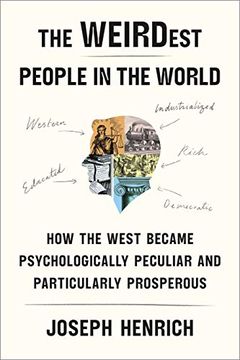
The WEIRDest People in the World
How the West Became Psychologically Peculiar and Particularly Prosperous
Explore the origins and evolution of the Western mind and its impact on the world in The WEIRDest People in the World. By delving into global psychological diversity, Harvard professor Joseph Henrich illuminates the cultural transformations that led to highly individualistic, nonconformist societies like ours. Drawing on research in anthropology, psychology, economics, and evolutionary biology, Henrich maps the shifts in family structures, marriage, and religion that laid the foundation for the modern world. This highly engaging and provocative investigation reveals the fascinating interplay between culture, institutions, and psychology that shapes human history.
Dani Rodrik
2020-11-06T19:38:09.000ZExplore the political economy of collective action, inequality, and development in this insightful book. Discover how society can break free from stagnation and progress by reforming existing arrangements and evolving informal institutions. Learn about the crucial balancing act involving state capacity, political input, and limiting concentrated power. This book investigates the complexities of these issues, including collective-action problems and inequality. With a flexible framework and analytical foundation, it offers a valuable guide for scholars and researchers in economic development and political economy.
Dani Rodrik
2020-05-26T11:18:46.000ZExplore the intricacies of evaluating incentives with this book that delves into the specific details that determine their efficacy. From the amount of incentives needed to attract a business to the effects on employment and tax revenues, the author breaks down the costs and benefits of these programs. With a focus on providing a model for understanding the effects of incentives, readers will gain a deep understanding of how to evaluate and design these policies.
Dani Rodrik
2019-11-18T16:52:47.000Z"Ghost Work" by Mary L. Gray and Siddharth Suri is a revelatory expose on the invisible human workforce that powers the web. These "ghost workers" are responsible for making the internet appear smart by performing tasks like flagging X-rated content, proofreading, and designing engine parts. An estimated 8 percent of Americans have worked in this "ghost economy," and the number is growing. However, these workers are often paid less than legal minimum wages, have no benefits, and can be fired at any time. Gray and Suri explore how to ensure that this new kind of work creates opportunity rather than misery for those who do it.
Dani Rodrik
2019-05-19T20:33:11.000ZThis thought-provoking book by renowned economist Paul Collier diagnoses the failures of capitalism and presents a pragmatic, realistic vision for how we can repair it. Deep divisions in society, including those between rural and urban, educated and less educated, and wealthy and developing countries, have led to the rise of populism and socialism. Collier offers original and ethical solutions to heal these rifts, drawing on his personal experiences and insights from other social scientists. He shows us how to save capitalism and move beyond the intellectual baggage of the past century.
Dani Rodrik
2019-03-15T19:33:23.000ZThis book examines the crisis facing the American worker, with stagnant wages, surging welfare reliance and declining life expectancy. Oren Cass challenges conventional economic assumptions, arguing that prioritizing consumption over workers has led to the current situation. He offers new solutions, including a culture of respect for all kinds of work, and placing workers at the center of society's priorities. This book offers a groundbreaking re-evaluation of American society, economics, and public policy, revealing how to turn things around and support a thriving, self-sufficient society that offers opportunity to all.
Dani Rodrik
2018-11-01T17:58:45.000ZUneven Centuries by Şevket Pamuk
Where Economics Went Wrong by David Colander
EuroTragedy by Ashoka Mody
When Things Don't Fall Apart by Ilene Grabel
Economics for the Common Good by Jean Tirole
The Space between Us by Ryan Enos
Adaptive Markets by Andrew W. lo
The Mind-Body Problem by Rebecca Goldstein
